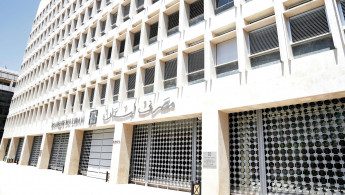Lebanese Central Bank employees suspend strike that crippled country's financial system
Employees at the Central Bank of Lebanon on Tuesday suspended their open-ended strike for three days, saying they hope their wages and benefits will not be cut under planned austerity measures in the one of the world's most indebted countries.
The strike began Friday and raised concerns it could paralyse the country's banking sector, which relies on the Central Bank for transactions and liquidity.
Tuesday's decision came a day after the Beirut Stock Exchange suspended trading due to the strike. The Beirut Stock Exchange announced the resumption of trading as usual starting Wednesday.
Thousands of Lebanese public employees are on strike amid fears their salaries and benefits could be cut as part of strict austerity measures to reduce a ballooning budget deficit and massive national debt.
Prime Minister Saad Hariri's government is debating an austerity budget and key reforms with the aim of unlocking billions of dollars in pledged foreign assistance.
The employees said they will meet later this week to decide on whether to resume or end the strike.
On Monday night, Hariri said Lebanon is far from bankruptcy but that if austerity measures are not taken it will be suicidal for the country's economy. He spoke after a meeting with the president and parliament speaker during which he said the budget is expected to be adopted by the Cabinet by the end of this week before being sent to parliament for approval.
"We call upon the media not to participate in spreading rumors," Hariri said about recent leaks about wage cuts.
Central Bank employees are paid a 16-month salary per year and there have been reports that the four-month annual bonus will be cut, effectively reducing their income by 25%, a move strongly rejected by the bank's staff.
Lebanon's economy is struggling with soaring debt, rising unemployment and slow growth.
The $85 billion debt - equivalent to about 150 percent of gross domestic product - and unemployment believed to be around 36 percent are compounding concerns that the country will finally cave in economically.





 Follow the Middle East's top stories in English at The New Arab on Google News
Follow the Middle East's top stories in English at The New Arab on Google News
![Israeli forces ordered bombed Gaza's Jabalia, ordering residents to leave [Getty]](/sites/default/files/styles/image_330x185/public/2176418030.jpeg?h=a5f2f23a&itok=_YGZaP1z)

